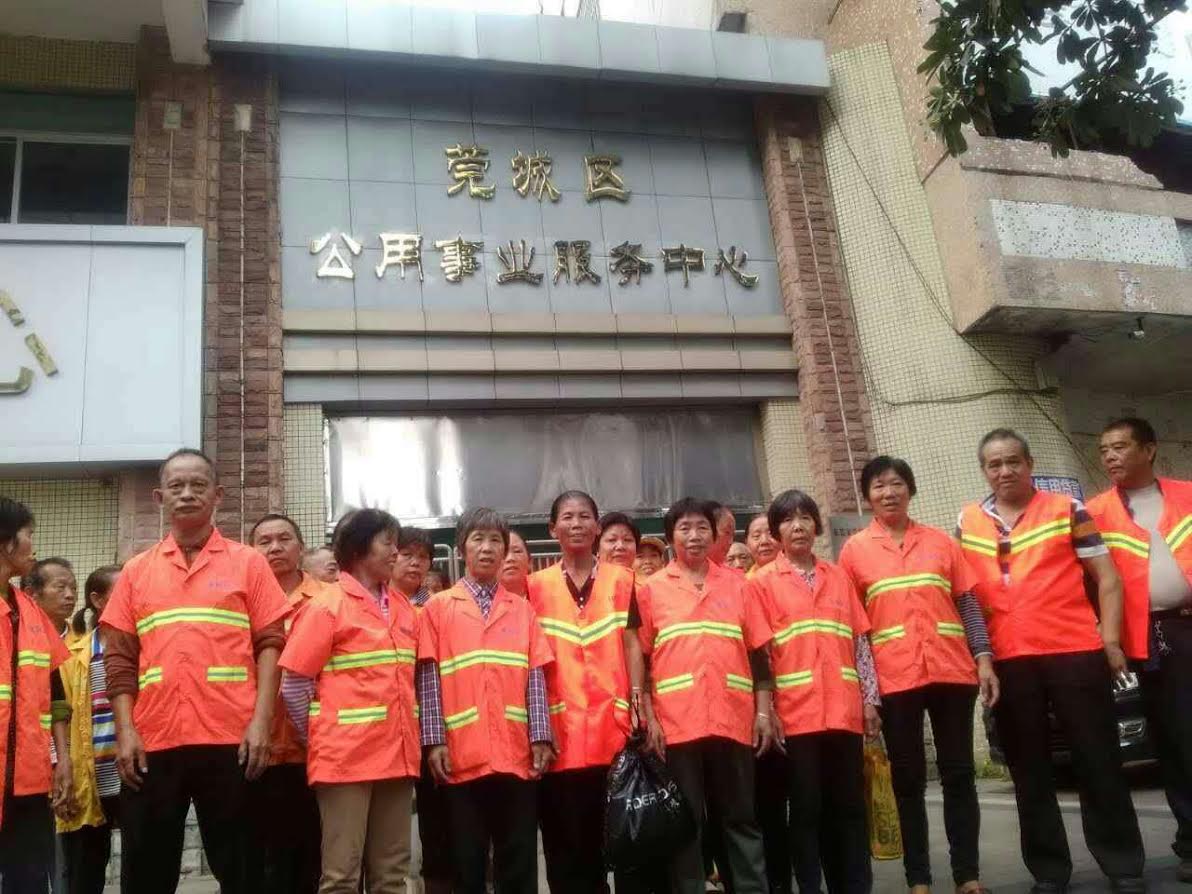After relentlessly fighting for their jobs and wages in arrears since 2014, 27 elderly street sweepers in the city of Dongguan, Guangdong, appealed their case against the local sanitation authority to a higher court and managed to have the initial ruling revoked as it “failed to acknowledge the basic facts”.
According to the verdict handed down by the Dongguan Intermediate People's Court, workers would bring their employer, the Dongguan Municipal Sanitation Authority, in front of a judge once again and have the case they initially lost to be reheard.
Li Jianrong and his colleagues, many of whom are above the country’s retirement age, joined the authority back in 2007 without signing a labour contract. Sanitation workers in China are often beyond retirement age and hence not eligible to sign formal employment contracts.
In May 2014, the 27 were asked to stop working for the authority and were instead outsourced to different contractors. When the most recent one, Dongguan Meishengda Municipal Engineering, lost its contract with the local government in December of 2014, both the company and the authority turned down worker's’ request for negotiation and gave them two options: agree to a reassignment and work in another location, or get dismissed with compensation.
The workers refused the offer and continued to sweep the streets in Dongguan without any pay for the next 17 months. They regularly visited the authority’s office and demanded payment of wages in arrears, and petitioned at various government departments.
In May of 2016, workers filed a lawsuit against the Dongguan Municipal Sanitation Authority at the First People’s Court in Dongguan for not paying them wages. The court ruled in the authority’s favor, stating that the workers couldn’t prove that they had been employed by the defendant and been working there the whole time.
“We have been working here for over a decade and all the neighbours know us,” one of the workers argued. “For example, the store owners could be our witnesses and prove we have been cleaning these streets without a dime for over a year.”

Unity is strenght: 27 elderly sanitation workers in Dongguan, Guangdong province, take their employer to court.
In mid December 2016 this group of sanitation workers took the case to a higher level: they appealed to the Dongguan Intermediate People's Court. The court revoked the initial ruling and asked the lower court to rehear the case. “The original ruling failed to acknowledge the basic facts,” said the appeal court in its verdict.
“Unity is strength. Progress can only be made when workers unite and act together,” noted a local non-governmental labour organisation currently helping the workers. “Sanitation workers are usually poorly paid and falling through the cracks of the conventional employment system. Because of age, they are very often not protected by the labour laws in China, and neither are they eligible for the work-related injury insurance scheme even though their working environment is the one of the most dangerous.”
Besides legal actions, sanitation workers in China are also taking their grievances to the streets: CLB’s Strike Map records 18 incidents of sanitation workers going on strikes in the first three quarters of 2016. The number was seven for the same period in 2015.
